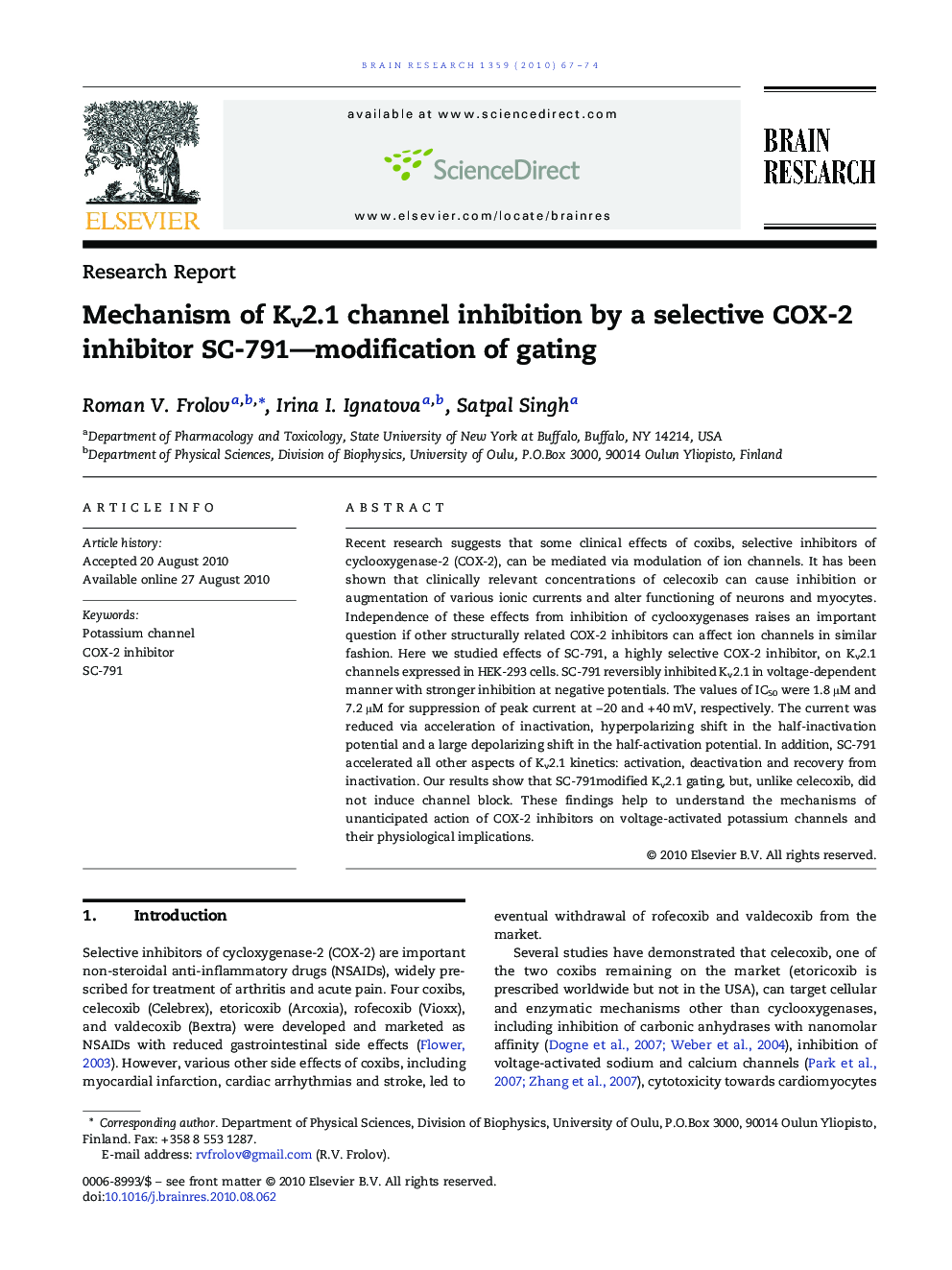| کد مقاله | کد نشریه | سال انتشار | مقاله انگلیسی | نسخه تمام متن |
|---|---|---|---|---|
| 4326453 | 1614080 | 2010 | 8 صفحه PDF | دانلود رایگان |

Recent research suggests that some clinical effects of coxibs, selective inhibitors of cyclooxygenase-2 (COX-2), can be mediated via modulation of ion channels. It has been shown that clinically relevant concentrations of celecoxib can cause inhibition or augmentation of various ionic currents and alter functioning of neurons and myocytes. Independence of these effects from inhibition of cyclooxygenases raises an important question if other structurally related COX-2 inhibitors can affect ion channels in similar fashion. Here we studied effects of SC-791, a highly selective COX-2 inhibitor, on Kv2.1 channels expressed in HEK-293 cells. SC-791 reversibly inhibited Kv2.1 in voltage-dependent manner with stronger inhibition at negative potentials. The values of IC50 were 1.8 μM and 7.2 μM for suppression of peak current at −20 and + 40 mV, respectively. The current was reduced via acceleration of inactivation, hyperpolarizing shift in the half-inactivation potential and a large depolarizing shift in the half-activation potential. In addition, SC-791 accelerated all other aspects of Kv2.1 kinetics: activation, deactivation and recovery from inactivation. Our results show that SC-791modified Kv2.1 gating, but, unlike celecoxib, did not induce channel block. These findings help to understand the mechanisms of unanticipated action of COX-2 inhibitors on voltage-activated potassium channels and their physiological implications.
Research Highlights
► Recent research suggests that some COX-2 inhibitors can modulate ion channels.
► COX-2 inhibitor SC-791 can inhibit brain delayed rectifier K+ channel Kv2.1.
► Detailed analysis reveals modification of Kv2.1 gating as mechanism of SC-791 action.
Journal: Brain Research - Volume 1359, 4 November 2010, Pages 67–74